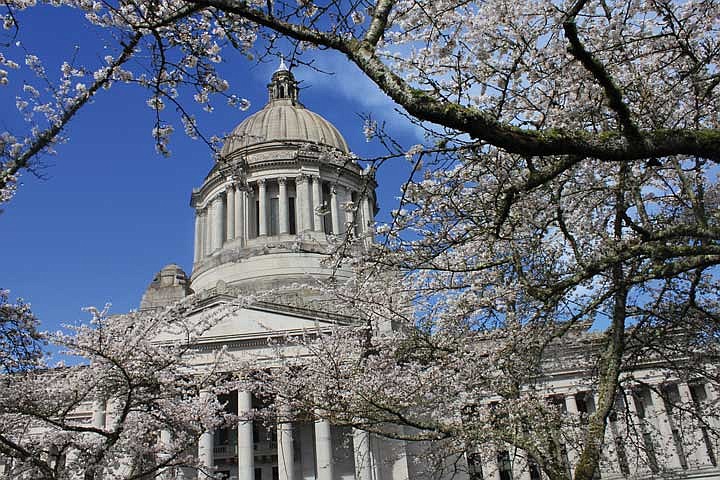Senate passes low-carbon fuel standard bill; returns to House
In a 27-20 vote, the Washington state Senate passed House Bill 1091, the low-carbon fuel standard bill, which many opponents say would hike gas and diesel prices in the state.
After the virtual legislative debate Thursday night, the bill will head back to the House to consider the Senate’s amendments.
HB 1091 would permit the state Department of Ecology to create the Clean Fuels Program to limit greenhouse gas emissions in transportation fuel, according to the bill’s text. The program looks to reduce carbon in fuels to 20% by 2035.
Democrats say HB 1091 would ensure children will have a healthier environment in the future while Republicans say the bill would impact Washingtonians’ wallets, especially those on the eastern side of the state.
Sen. Reuven Carlyle, D-Seattle, said during the virtual legislative debate climate change is affecting peoples’ lives. Bills like HB 1091 would work to decarbonize the transportation sector, which makes up 45% of the greenhouse gas emissions in the state, he said.
“The work of climate change is unheralded,” Carlyle said. “The work of taking meaningful action is not easy.”
Sen. Judy Warnick, R-Moses Lake, said during the virtual legislative debate she received a handwritten letter from a resident in her district who was worried about HB 1091. The resident, a fifth-generation farmer from Quincy, was concerned about the future of her family farm if the bill is signed into law.
“I understand … the underlying goal of this legislation, but I think the high cost is going to hit the low-income people and our agricultural people harder than anyone else,” Warnick said.
Sen. Mark Schoesler, R-Ritzville, said during the virtual legislative debate the only thing “honest” about HB 1091 is the increase in fuel prices. The bill would impact producers and rural residents the most because they drive farther to get to certain places.
Sen. June Robinson, D-Everett, said during the virtual legislative debate HB 1091 is for children whose health and lives are at risk. Childrens’ livelihoods are compromised due to the unhealthy environment they live in, which is why the bill needs to pass.
Transportation fuels that would be exempt from the Clean Fuels Program include fuel for aircraft, railroad locomotives and vessels, according to the bill’s text. Military tactical vehicles and tactical support equipment are also exempt, among a few other things.
Sen. Doug Ericksen, R-Ferndale, had an amendment that would prevent the creation of the Clean Fuels Program unless the program and other policies related to greenhouse gas emissions are proven to be effective. His amendment was not adopted into HB 1091.
“This amendment is very important because people keep talking about (how) they want to fight climate change,” Ericksen said. “This bill doesn’t do anything to fight climate change. It (raises) taxes on working people in Washington state.”
Sen. Liz Lovelett, D-Anacortes, said during the virtual legislative debate Ericksen’s amendment would prohibit the Clean Fuels Program from being enacted unless the state finds a way to monitor global greenhouse gas emissions, which is “dubious and difficult to enact.”
The House passed HB 1091 on Feb. 27 on a 52-46 vote. April 25 is the last day for this year’s state legislative session.

